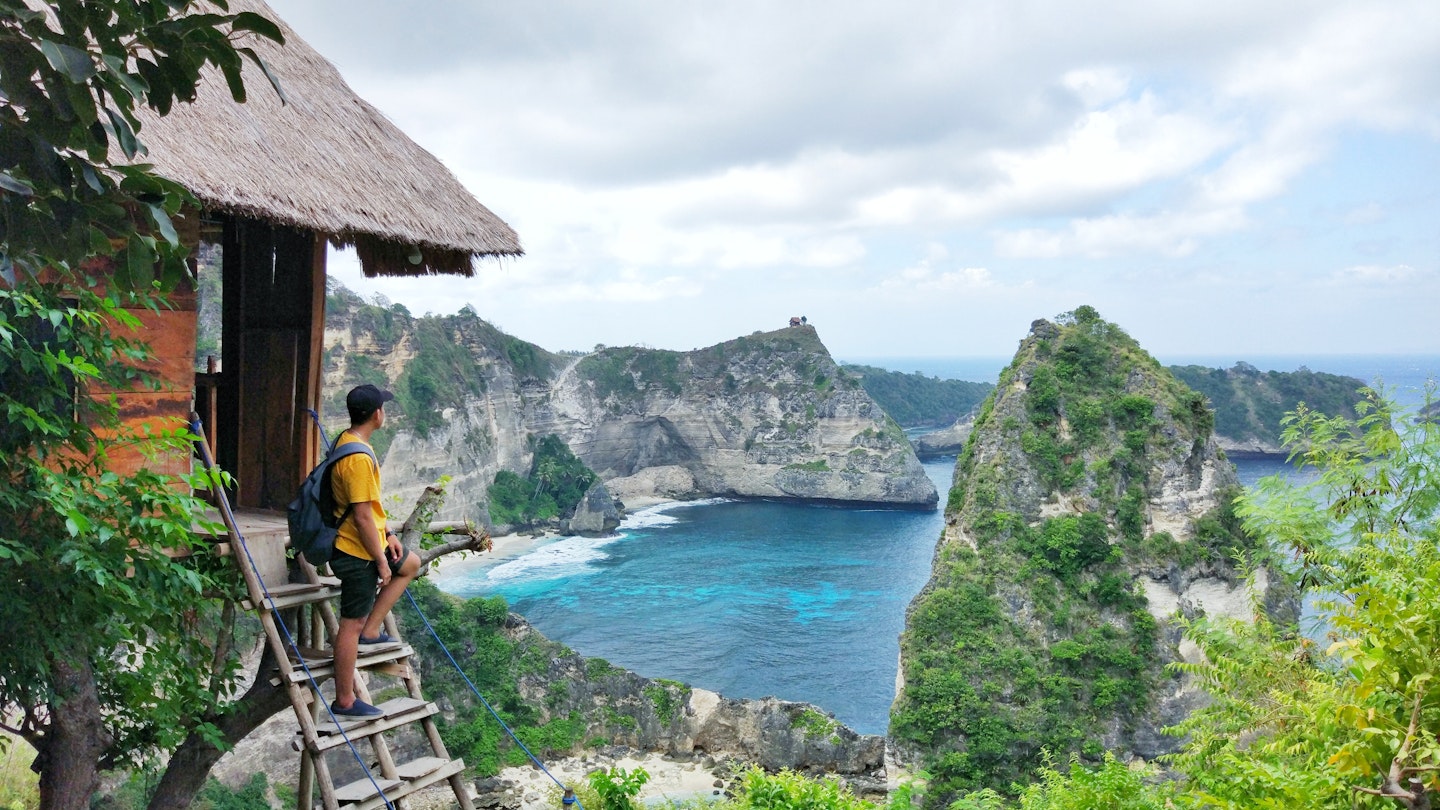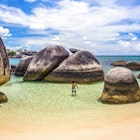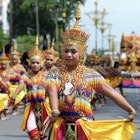Bali–Lombok–Gili Islands may be the classic Indonesian "tour," but there is so much more to Indonesia. With more than 13,000 islands to choose from, the world’s biggest island nation offers an entire playground of adventure.
Plan your trip around these 11 things to do.
1. Walk with dragons in Komodo National Park
The Unesco-protected Komodo National Park is literally the domain of living dragons, Indonesia’s apex super-predators. Rinca Island (just east of Komodo) – smaller but more densely populated with particularly aggressive dragons – is one of the most exciting predator territories on the planet in which to trek. It is possible to combine dragons and orangutans in a single tour, taking in some of the natural icons of the world’s second-richest wildlife zones (only the Amazon has greater natural diversity than Indonesia).

2. Climb volcanoes in Java
A third of the world’s active volcanoes are on Indonesian soil. On Java especially, you are rarely out of sight of a smoldering volcano. The mighty Mt Bromo at 2329m (7641ft) is perhaps the most popular to climb – it is best to time your arrival on the summit for sunrise.
At either extreme of the island, you find the equally dramatic Krakatau (accessible by boat from the West Javanese coast) and 2799m-high (9183ft) Gunung Ijen with its ghostly rivers of blue fire caused by burning sulfur. For those who are less fit (or with limited mobility), Tangkuban Perahu volcanic crater at 2084m (6837ft) is accessible by vehicle from Bandung city. It is safest to climb these active volcanoes with an experienced guide or as part of a tour with a responsible operator.
3. Experience one of the world’s last megalithic cultures in Sumba
The island of Sumba remains almost unknown despite being twice the size of Bali. A unique culture based on ancestor worship has spawned a dramatic megalithic culture where giant tombstones (the largest vastly outweighing the biggest stone at Stonehenge) are moved several kilometers overland by hundreds of laborers. Home also to the ritual (and still occasionally fatal) horseback battles known as the Pasola, Sumba is one of Indonesia’s developing frontiers for adventurous travelers.
4. Visit the mystical Kelimutu Lakes in Flores
Due to a strange quirk of geology, the three sister lakes of Kelimutu in the center of Flores Island are capable of dramatically changing color over the course of just a couple of days. Local people carefully watch the color transitions of the lake known as Tiwi Ata Mbupu since it is said to be the resting place of demons and the spirits of witches. It is best to stay overnight in the village of Moni, where there are several homestays and hotels (as well as a lovely hot spring) so that you are on the spot to visit the crater lakes around dawn before the mountain mists descend.
5. Dive the Coral Triangle
There are an estimated 750 species of coral in Indonesian waters (the entire Caribbean has just 70). With much of the richest section of the Coral Triangle – the world’s greatest center for marine biodiversity – lying in Indonesian waters, it is unsurprising that the area is top of the wish list for any diver worth his or her salt.
Raja Ampat has become known as the Indonesian dive site par excellence and, along with Wakatobi National Park off the bottom of Sulawesi, is known for encounters with whale sharks. Manta rays are another of the main draws, and both at Komodo’s "Manta Alley" and Nusa Penida’s "Manta Point" (just east of Bali), you’re virtually guaranteed to see them.
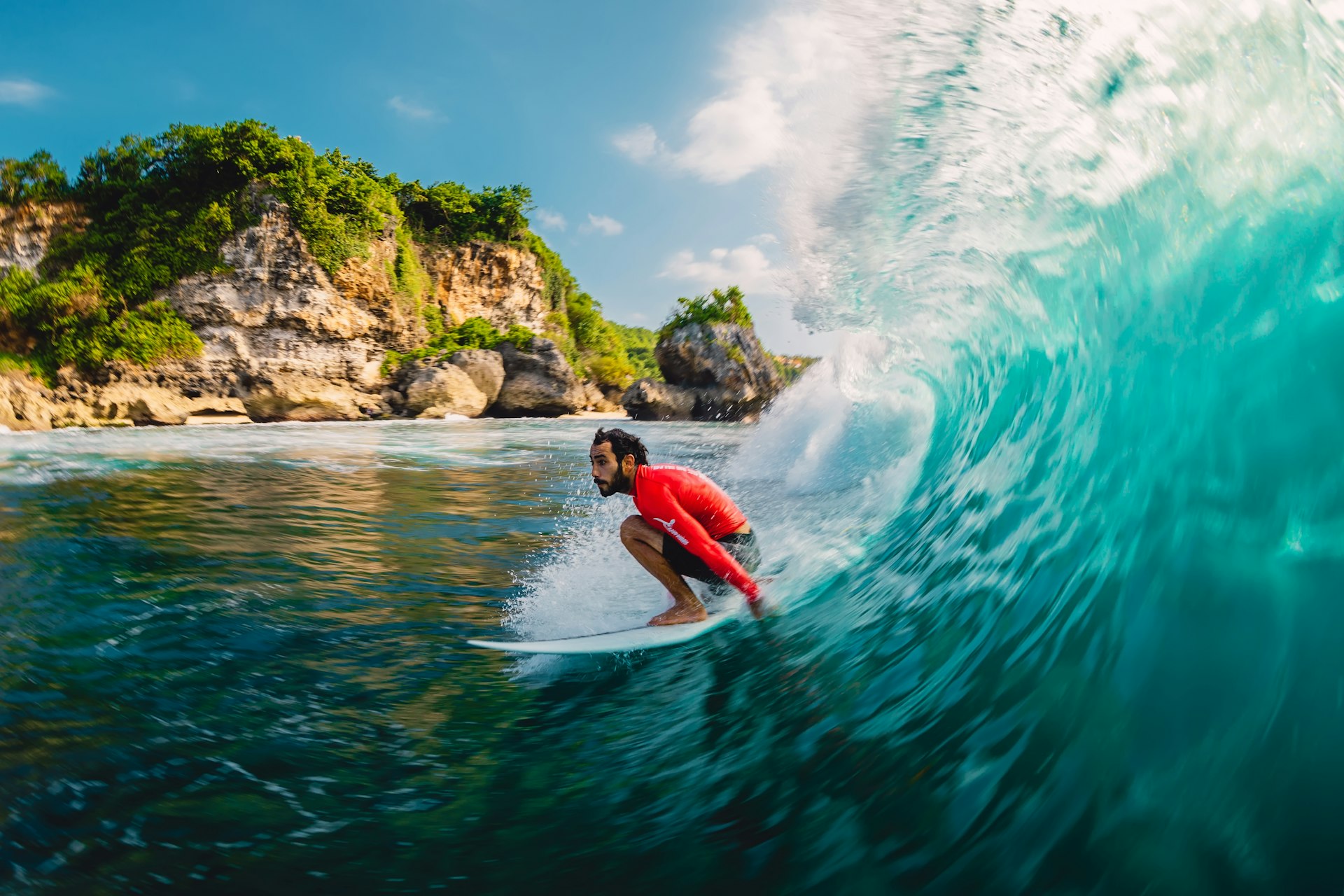
Break away from the crowds in Bali’s Wild West
Anyone who thinks Bali is overrun with tourists and over-developed need only take the drive out beyond Canggu (where the tide of tourists seems to hit its high line). Two hours farther west from here – on a beautiful drive through seemingly endless paddies – you reach Medewi in the heart of West Bali.
This low-key little surf town is set in the middle of twenty kilometers of deserted black sand beach, which is unmarred even by a single sun-lounger. At Perancak river mouth, you’ll see the world’s most colorful traditional fishing fleet. And on Sunday mornings, the dramatic (but often gory) West Balinese sport of mekepung buffalo-chariot racing takes place across the vast plains of paddies south of Negara town.
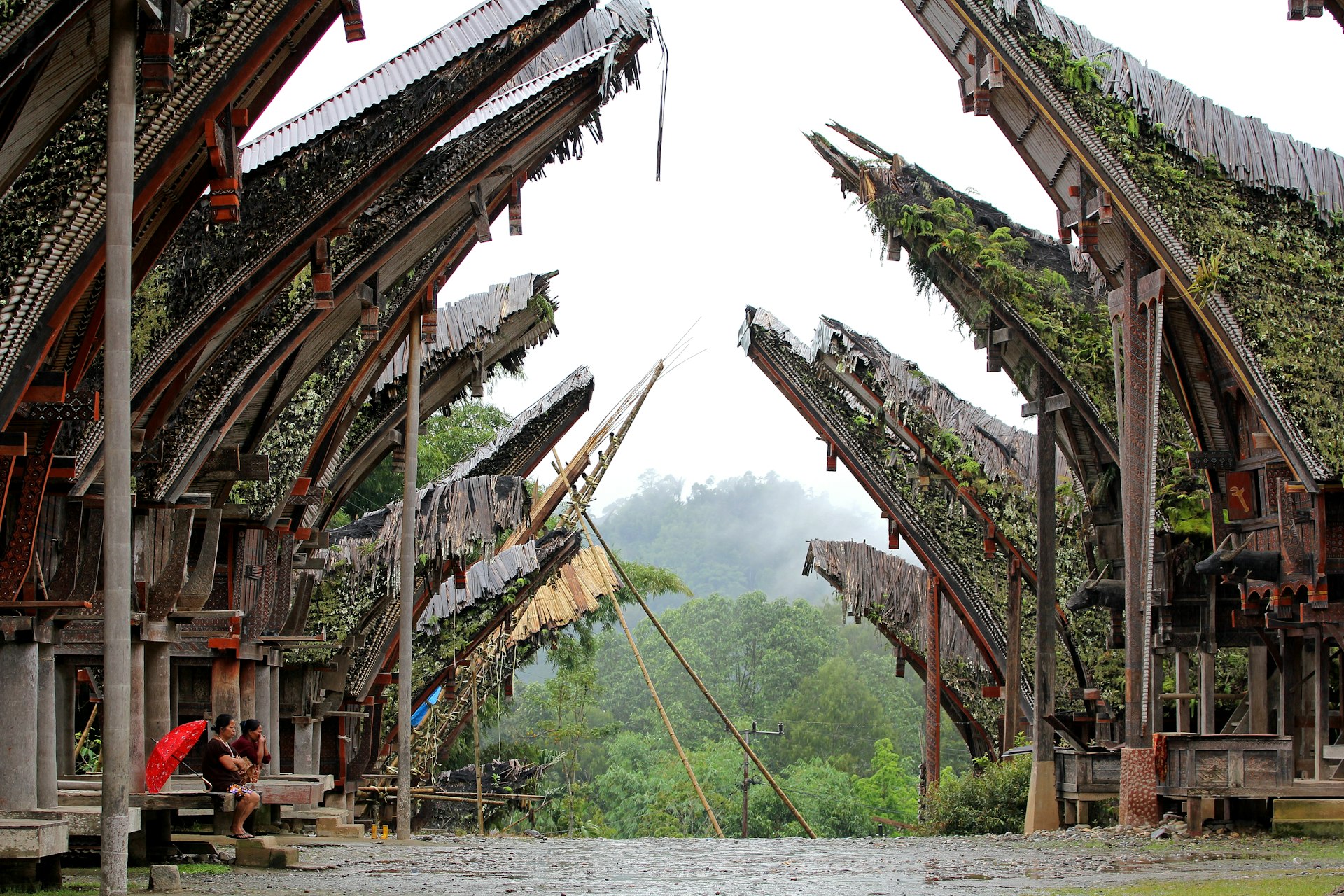
Visit the unique otherworldly architecture of Tana Toraja
Hidden in the center of Sulawesi Island, you find one of the world’s most fascinating cultures. The people of Tana Toraja build spectacular homes – the roofs of which, some say, represent buffalo horns, or ships. (Others say they represent spacecraft!) With its blissful highland climate and spectacular landscapes, Tana Toraja is a wonderful area for hiking, but somewhat bizarrely, the major drawcard lies in the lavish funeral rites that can cost more than US$100,000. Deceased loved ones are considered merely ill until the last rites take place. You may be shocked to be introduced to older people who passed away several years before and yet are still carefully preserved in the family’s front room. Other island highlights include diving in Bunaken National Marine Park and exploring the Minahasa homelands of North Sulawesi.
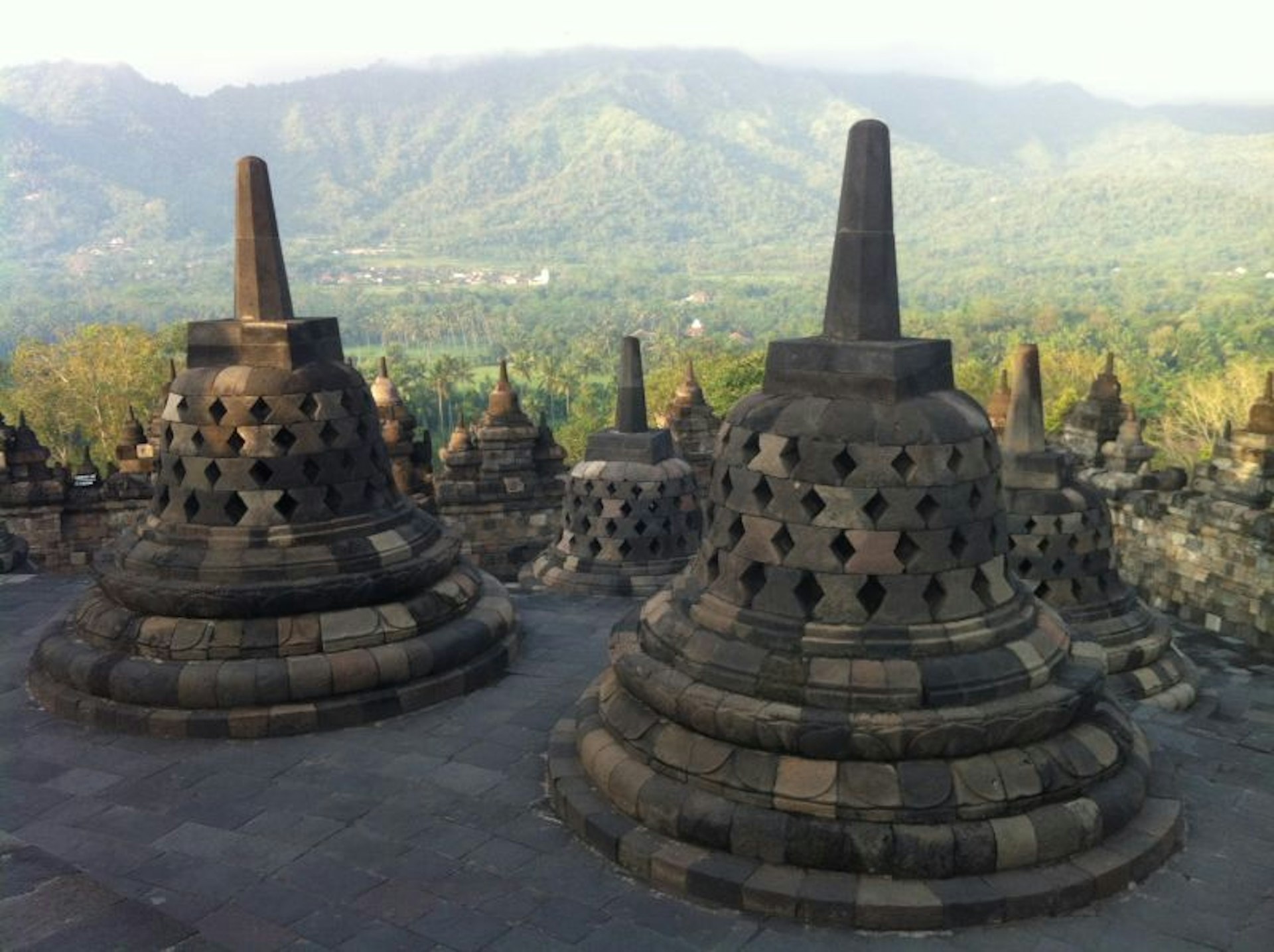
Visit one of the world’s most spectacular temple ruins
The Unesco-protected Borobudur temple in Central Java is one of the archaeological wonders of our planet. It is believed to be the biggest (and certainly the most mysterious) Buddhist temple ruin and dates back over 1200 years. Try to stay nearby so you can arrive before first light and climb straight to the upper terrace – called the Sea of Immortality – to watch the spectacular sunrise over the Javanese volcanoes. It is one of the most spiritually powerful experiences that Asia has to offer. Admission to the temple is US$25 per person.
Sail with the ‘bogeymen’ in a phinisi schooner
The traditional timber sailing schooners built in southern Sulawesi have become part of Humanity's Intangible Cultural Heritage and an icon of Indonesia’s maritime tradition. Built by the Bugis and Konjo people, these boats are known as phinisi (sometimes written as pinisi). The Bugis were once fearful pirates who plundered much of the archipelago and became a European household name – and the subject of countless childhood nightmares – as the "Bogeymen." This now celebrated fleet of charter vessels – frequently sailing around Sumbawa, Komodo, Maluku, and West Papua… – now represents what is often the only feasible way of accessing some of Indonesia’s remotest islands.
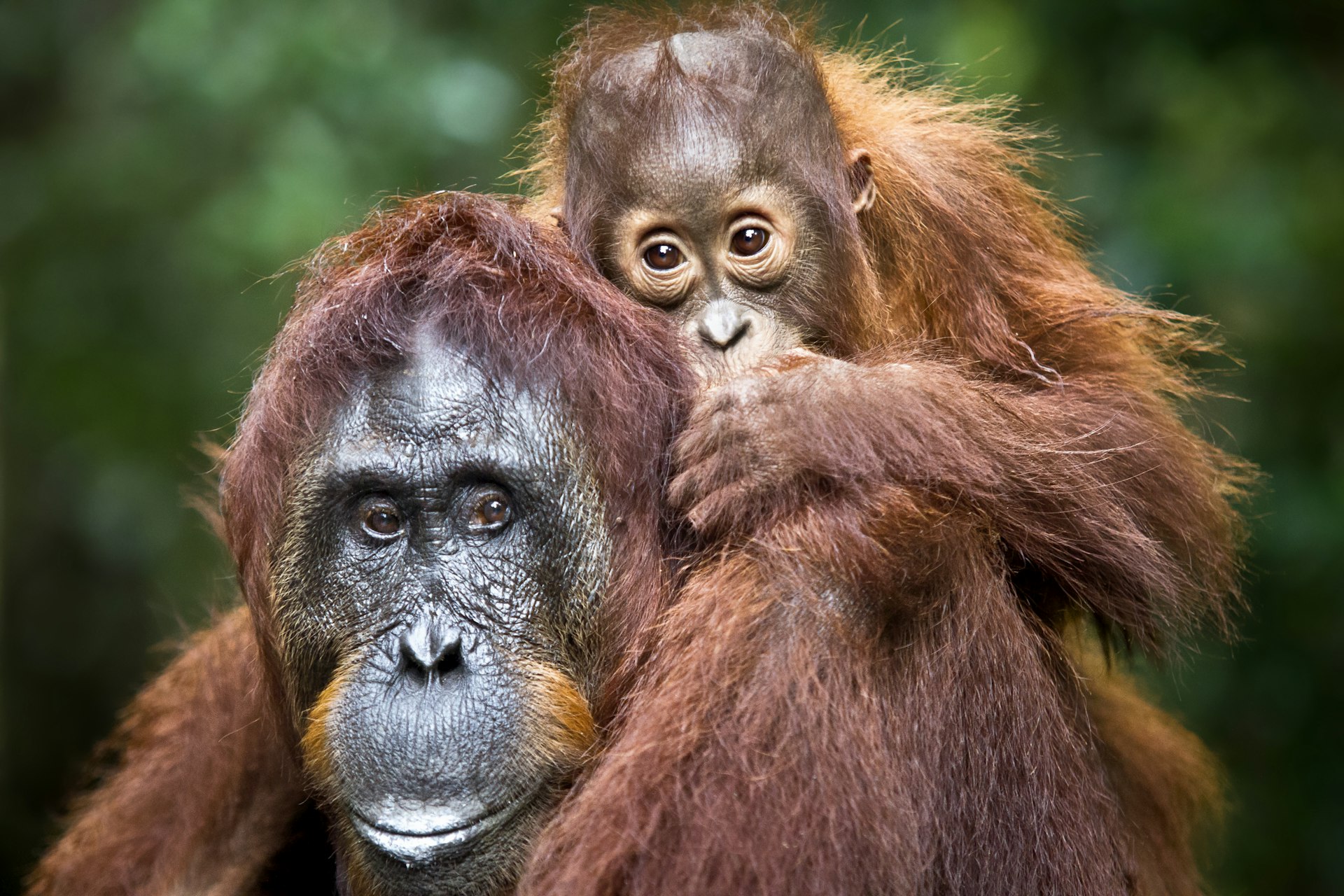
Watch orangutans and track tigers in Sumatra
Gunung Leuser National Park is the best place to see critically endangered Sumatran orangutans. The village of Bukit Lawang – built along the steep Bohorok Valley – is the best place to set up guided trips or join a tour to see the wild apes. But try not to rush your visit because this little community is one of Indonesia’s most pleasant (and most underrated) backpacker hangouts. Kerinci Seblat National Park (despite being almost twice the size of Gunung Leuser) is rarely visited, yet it is home to one of the world’s only healthy – ie, increasing – tiger populations.
Visit Danau Toba and the Batak Highlands
Danau Toba is the world’s biggest crater lake. In the middle of the lake lies Samosir Island (the world’s biggest freshwater island, listed in Guinness World Records as "the world’s biggest island on an island"). There are several unique reasons for visiting this area, but the immensely welcoming – and culturally fascinating – Batak people (once feared as cannibals) are the main drawcard here. Don’t rush a trip to Danau Toba, though. You can rent wonderful Batak houses for just a couple of dollars a night and spend a week or so exploring all parts of the island (including the hot springs and, with permission and a Batak guide, Gunung Pusuk Buhit – the sacred mountain).

